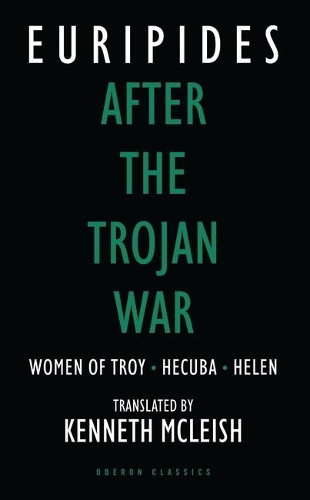
After the Trojan War: Women of Troy / Hecuba / Orestes
(Paperback)
Publishing Details
After the Trojan War: Women of Troy / Hecuba / Orestes
By (Author) Euripides
Translated by Kenneth McLeish
Translated by Kenneth McLeish
Bloomsbury Publishing PLC
Oberon Books Ltd
1st March 1995
United Kingdom
Classifications
Tertiary Education
Non Fiction
Plays, playscripts, drama
882.01
Physical Properties
Paperback
192
Width 130mm, Height 210mm, Spine 13mm
Description
Kenneth McLeish's stunning translations of three plays exploring the Trojan War, by one of the great Athenian dramatists. Each play shows the aftermath of war from a different standpoint. Women of Troy is set amongst a group of captives waiting to be shipped from Troy as slaves - Queen Hecuba is their comforter but in Hecuba she is driven to the edge of insanity by her own great personal loss. Helen takes place seven years after the end of the War. In Egypt - treated as a backwater, far from 'real' events - Helen waits anxiously for her husband Menelaus to rescue her. One of the greatest and most influential of the Greek tragedians, Euripides, is said to have produced 92 plays, the first of which appeared in 455BC.
Author Bio
Kenneth McLeish (1940 - 1997) was born in Glasgow and educated at Bradford Grammar School and Worcester College, Oxford. He taught Classics at several schools, notably Watford Grammar School and Bedales, and then turned to full-time writing of adult reference books. His earlier works were for children. He was very prolific and an accomplished linguist. In the last ten years of his life he was delighted to realise his boyhood dream of working in the theatre. Kenneth McLeish was a Fellow of the Royal Society of Literature. His translations include works by Euripides, Horvath, Strindberg, Ibsen, Aristophanes, Sophocles and Molire. His original stage plays are 'Orpheus', 'Saleem And The Pirates' One of the greatest and most influential of the Greek tragedians, Euripides, is said to have produced 92 plays, the first of which appeared in 455BC.
